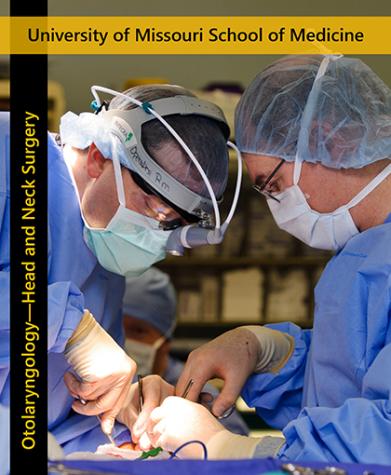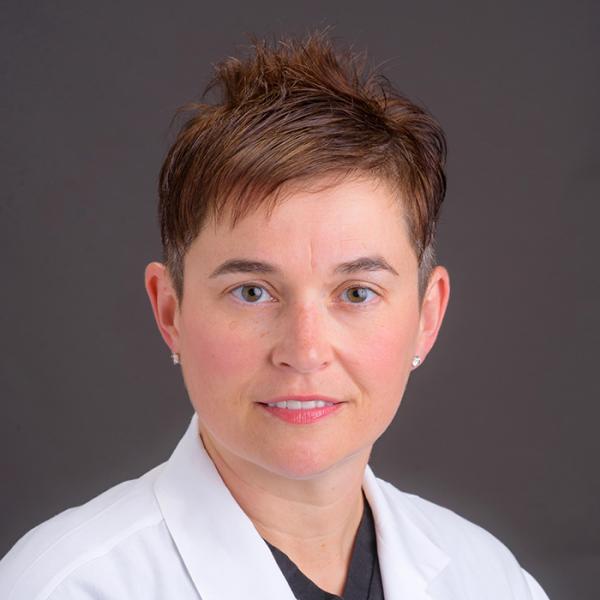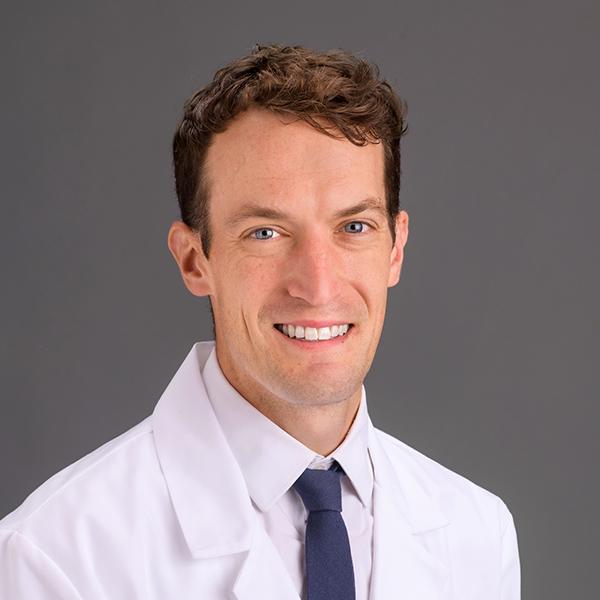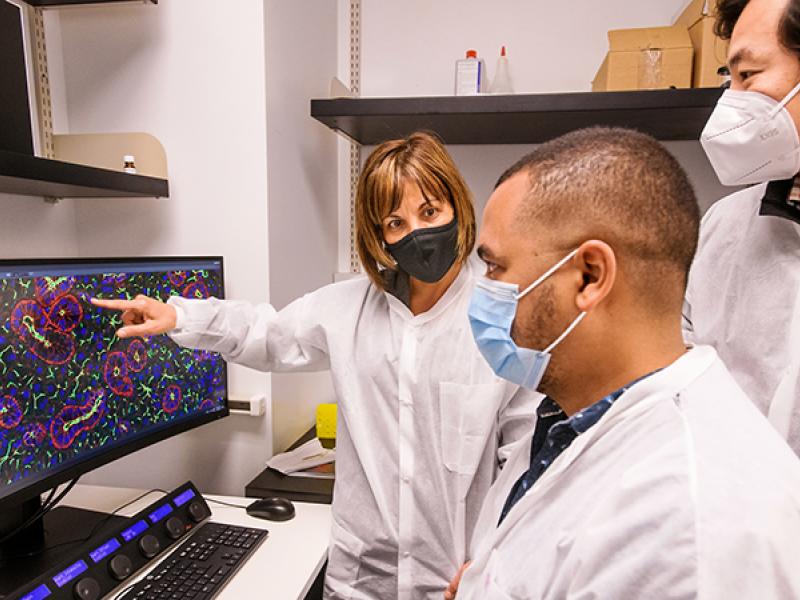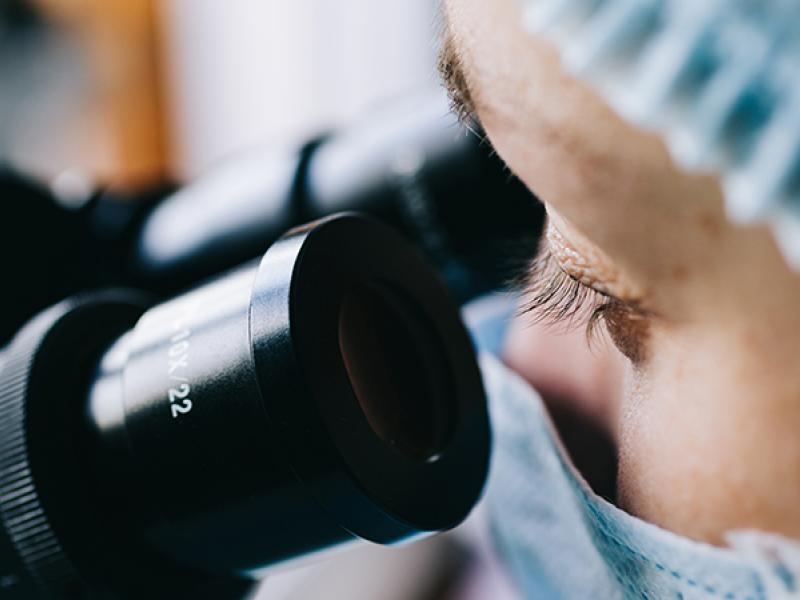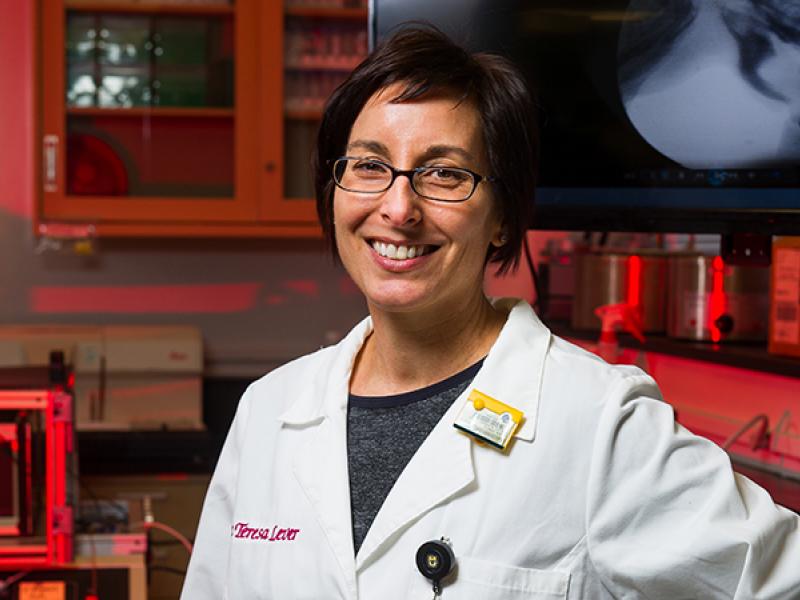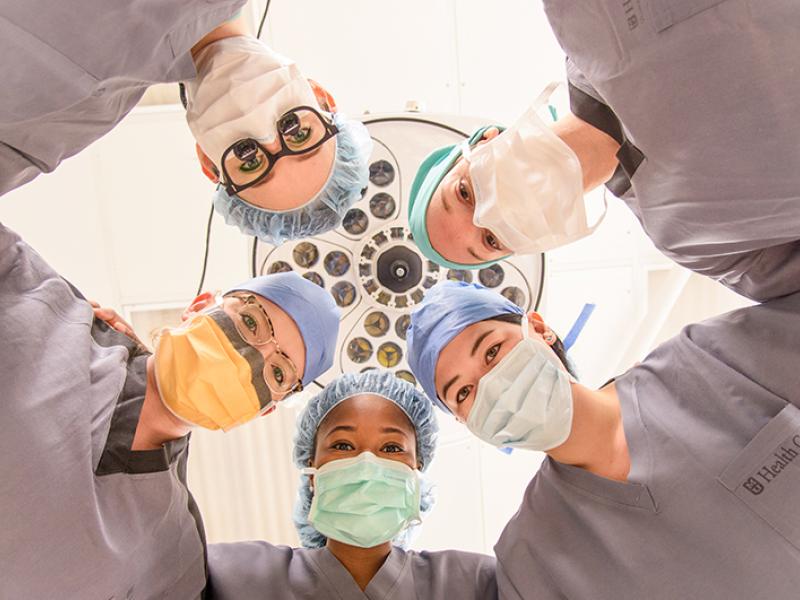The Department of Otolaryngology – Head and Neck Surgery at the MU School of Medicine has a long history of excellence in training Otolaryngologists.
On behalf of the Department of Otolaryngology—Head and Neck Surgery, we welcome you to Mizzou and encourage you to learn more about graduate medical education training opportunities with us. The otolaryngology residency program has been here since the first official trainee in 1970. From our early beginnings as a division of general surgery, the practice became its own department in 2003. We have graduated residency alumni who can be found throughout the United States in traditional, hospital, and/or academic practices.
Clinical
Clinically, the department provides the premier otolaryngic care for citizens of central Missouri. Our surgeons in tight coordination with our endocrinology colleagues deliver nearly all the surgical thyroid and parathyroid care for the hospital system. The full complement of oncologic ablative and reconstructive surgery is performed within our department. With the only fellowship trained neurotologist in this region, our Hearing and Balance Center provides cochlear implants for the patients of mid-Missouri, along with comprehensive audio and vestibular assessment and rehabilitation. Our allergy center is an major provider for sublingual and subcutaneous immunotherapy for pediatric and adult patient with aeroallergens. Our faculty collectively have extensive fellowship training in head and neck oncology, microvascular surgery, laryngology, otolaryngic allergy, facial plastic and reconstructive surgery, neurotology and pediatric otolaryngology.
Education
The pride of our department lies in medical education. Our program provides a balanced experience of surgical exposure, clinic exposure, as well as time for cognitive development through didactic conferences, workshops, and individual study. The department office, conference room, resident offices and temporal bone lab are conveniently located within the main health care campus. Resident otolaryngology education doesn’t exist purely within the confines of our campus. The department funds and facilitates opportunities for residents to attend external courses, conferences, and workshops to hear from experts around the country. The VA campus provides opportunity for greater resident autonomy with appropriate faculty oversight. On average, our residents cumulatively score in the top 50 percent on the Otolaryngology Training Examination compared to other programs. We currently accept two residents every other year, alternating with three residents every other year.
Research
Discovery and innovation play a growing role in our enterprise. We have a burgeoning research program on swallowing disorders using new mice models developed by our researchers here at the University of Missouri. We have several ongoing industry funded clinical trial projects that fuel our enterprise. These endeavors—in addition to a multitude of clinical projects—are facilitated by two research coordinators who help enormously with grant acquisition, IRB clearance, and patient recruitment.
Our clinicians are involved in shaping the practice of medicine and otolaryngology here at the University of Missouri and beyond. Our faculty hold leadership positions in the American Academy of Otolaryngology—Head and Neck Surgery and other national subspecialty associations as well as throughout the University of Missouri Health Care and the School of Medicine. Our oncology and pediatric teams collaborate with other regional academic institutions to form the Midwest Head & Neck Cancer Consortium and the Midwest Pediatric Consortium, respectively, for sharing ideas and pursuing joint research interests. Our service activities demonstrate the passion and commitment we have to our organization and field.
Thanks for your interest in our program. We hope to cross paths with you sometime in your future!
How to apply
The University of Missouri School of Medicine Department of Otolaryngology – Head and Neck Surgery training program matches through the National Resident Matching Program (NRMP). Applications must be submitted through the Electronic Residency Application Service (ERAS) by October 1, 2025. Applicants of diverse educational, social, and economic backgrounds are encouraged to apply. We do participate in the ENT Signaling process by integrating the signals with holistic review to determine interview offers. Signaling is not a requirement for interview. We also intend to participate in the Common Interview Offer Date Initiative.
Answers to Common Questions
- How many open positions do you have for the 2026 match? Three
- When are the 2026 match interview dates? TBD
- How many letters of recommendation do I need? Three are required, four will be accepted
- Visa Sponsorship: J1 only
- Is U.S. clinical experience required? No, but it is preferred
- Do you participate in the common interviews offer date? Yes, November 6, 2025
- Do you participate in signaling? Yes
- How do you use signaling? We integrate the use of signals as part of our holistic review
- How do you evaluate applications?
- We do not apply standardized testing cut-offs.
- We do not apply an algorithm to screen applications.
- Candidates' photographs are removed from the application prior to review.
- We look at DO and MD candidates alike.
- Candidates that self-identify as underrepresented in medicine, have geographic ties, or have social connections to this region may be provided additional review.


